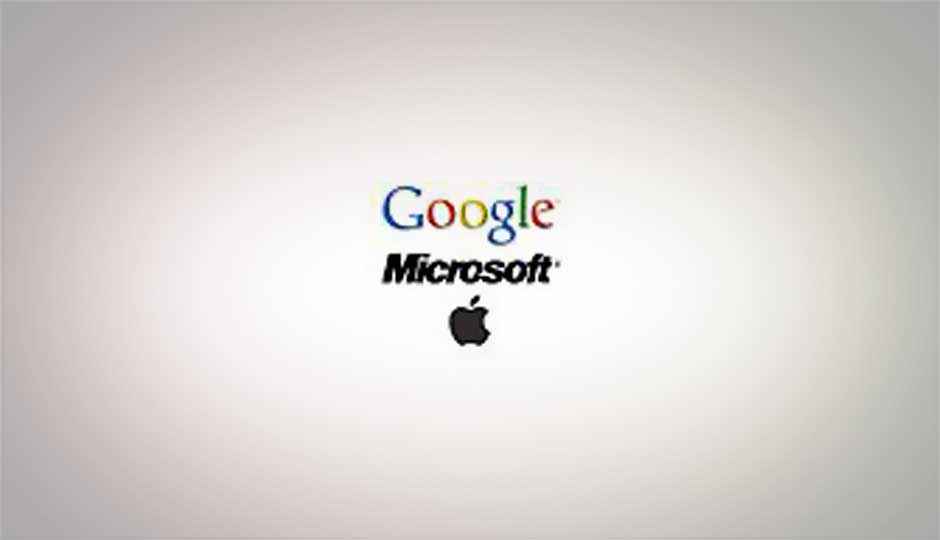iCloud, Windows 8, Google+, the tech giants battle their biggest demons

To call the last few months in the tech-sphere eventful would be a gross understatement. However, each announcement made in the recent times is more a promise for the future rather than something we can use now. iCloud, will be launched in the fall, and should work like magic for Apple devices. And Windows 8, it will certainly change the way we use our computers and kill the iPads! Google will kill Facebook, when it finally comes out of beta! It is going to be very interesting to watch the tech giants attack products that they have historically fumbled so much with in the past.
Apple’s iCloud is a beautiful promise of a continuous client. It will apparently, keep all your apple devices (and even Windows PCs to an extent) on the same page. Almost magically, a word Apple has thrown around at every opportunity ever since they launched the iPad. “The truth is in the cloud” sure sounds good, but will iCloud really deliver on its promises? We would lean on doubtful side if we pay any attention to the saying, ‘history repeats itself’. Apple has historically made a mess of their cloud offerings. MobileMe has such bad reputation, that Steve Jobs himself made fun of it on stage, while launching iCloud. “Why should we trust them? They are the ones that brought us MobileMe,” he said. Honestly, we have the same question. Perhaps, Apple really has learnt its lesson. And acquisitions such as Lala sure must have helped.
[RELATED_ARTICLE]
While Apple only made mess of their cloud services with the MobileMe, (their previous services, iTools and .Mac were both considered as at least half-decent) Microsoft has failed over and over, and over again in pushing tablet computers. First there was Windows XP, tablet edition, then Vista, and finally Windows 7. If someone thinks that Microsoft is any kind of player in the tablet market, they have to be kidding themselves. Now, they are trying again with Windows 8 (or whatever it will be called). This time, however, they are doing something different. In the past, Microsoft has repeatedly tried to shove the same UI on tablet as the one used with a mouse and keyboard. And consumers have refused to swallow the touchy mutation of their PC. This time around, Microsoft has finally decided that tablets need a tailored UI, and are thus revamping windows thoroughly to be finger-friendly. There are still some glaring holes in what was shown off, most obviously the same old UI, whenever a legacy app is opened up. And there is the question of how consumers will react when the touch based UI is shoved down their throats even if they are using a mouse and keyboard. But, there is still almost a year before the OS ships, and we can give Microsoft the benefit of the doubt here, and hope they figure out everything by then.
Oh, and finally did you see that new black bar at the top of Google? It’s called the sand-bar by the way. And it does have a reason for its existence. It’s called Google . Or, more commonly, Google’s Facebook-killer/clone. It’s Google’s latest ploy to dominate the social aspect of the internet. Again, the Buzz from the past shows that Google has been almost ignorant of human interaction. Google announces a lot of services, and some of them may not launch at all (music store…), while others may stay in beta for eternity, the services they do launch are almost always runaway successes. Buzz has been a glaring omission from that long list of successes. For those who don’t know, Buzz was a Twitter clone that was baked into Gmail in order to gain popularity. Moreover, at launch, people were automatically followed each other, in order to push use. The users didn’t take this too kindly however. And there was a huge public outcry over Buzz’s apparent lack of privacy. Soon, Buzz was forgotten by everyone. I, honestly, don’t know if it is still a part of Gmail or not. I have become used to ignoring its presence. With Google , Google is trying again, and with much more force to take the social internet by storm. Google has some great features such as quick grouping of friends with something called Circles, 10-user video chat, and a slick group messaging client. And it has been generally likes by early testers. The first holes are surfacing already though. And Google still doesn’t have answer for why users need yet another social network. Google has a ton of customers using its other services, and it’s betting on using the sand-bar placed on top of every Google service to convert users to Google . The strategy makes some sense, so we would like to see how this unfolds.
Maybe silicon valley will finally ward off the evil spirits and emerge victorious.
Also read,
